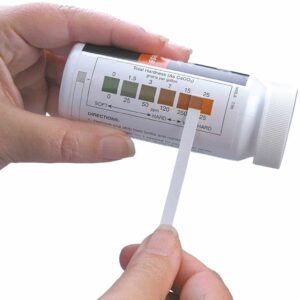Water is life, right? Especially in places like Lehigh Acres, Fort Myers, and Naples, FL, where sipping on clean water isn’t just about quenching thirst but also about staying healthy and avoiding those sneaky contaminants that might be hiding in your taps. Testing your water quality is the first step in the game of ensuring that what you and your family drink won’t do more harm than good.

The usual suspects in our water here might include anything from chlorine and lead to bacteria that you wouldn’t want even near your pet chameleon. These baddies could sneak into your water supply through old, corroding pipes or even natural deposits. Missing them during a check-up can lead to problems ranging from mild stomach bugs to more serious long-term health issues.
Those folks up in regulatory offices didn’t just make rules about water quality standards for the heck of it. The regulations and standards set out by authorities in Florida aim to keep our taps running clean and safe. Testing your water lets you know if it meets those standards or if it’s time to take action. Think of it like getting your car tested before a long road trip; how else would you know if things need tinkering or tweaking before the system is installed?
Whether you live in a bustling suburb of Fort Myers or the chilled beaches of Naples, making sure you’ve got accurate water testing before dumping money into a water treatment system is a smart move. It helps tailor your water system to tackle specific issues that matter most to you, ensuring that the end result is not just crystal clear but also safe and tasty to drink.
Essential Methods and Tools for Testing Water Quality
Diving into water testing feels a bit like playing detective, and there’re a couple of ways to go about it. You’ve got your handy home testing kits, which are pretty popular because you can grab one from a local hardware store in Lehigh Acres, or even order online. These kits usually cover the basics—pH balance, hardness, chlorine, and lead levels. They give you a rough idea of what’s in your water by changing colors or showing levels that you can compare against a chart.
For those who want the nitty gritty details, professional laboratory tests are up for grabs too. These labs associate with local services around Fort Myers and Naples, offering a detailed report on your water’s overall quality, including some hard-to-detect nasties like bacteria and heavy metals. It’s like sending your water to a wellness check-up with all the fancy equipment.
Testing your water isn’t just about collecting and sending off a sample though. The process involves understanding what each parameter means. For example, pH levels indicate acidity, hardness affects how soap reacts with your water, and TDS (Total Dissolved Solids) provides an aggregate count of what’s dissolved in your water. Each of these gives a unique peek into your water’s identity.
If you’re in the region, there’s an abundance of local resources and services ready to help. Many community centers around Naples and Fort Myers offer guidance on choosing testing methods or even subsidized kits. Some even partner with professionals who can walk you through the process or do the heavy lifting for you, ensuring nothing gets overlooked in your quest for cleaner, safer water.
Interpreting Results and Taking Action
Got your water test results in hand? Great! The numbers and color codes might look like a secret language at first, but each part tells a story about what’s actually in your water. Let’s break things down without breaking a sweat. If your pH is off, it might affect the taste or how effective your existing plumbing and heating systems are.
If the test for contaminants like lead or bacteria comes up positive, that’s a definite call to action. But don’t panic! It’s more about finding the right solution than slamming the panic button. Each issue can guide your choice of water treatment systems—from simple filters to complex purification units. For instance, a carbon filter might tackle chlorine while a more sophisticated reverse osmosis system could handle multiple concerns.
Picking the right system depends on the severity of the issues you found in your test results. Talk to the pros—there are plenty in Fort Myers and Naples who specialize in water treatment systems, and they’ll help fine-tune a system that suits your needs. It’s all about customizing for peace of mind!
Once you’ve got a system up and running, sticking to a routine of maintenance and occasional re-testing is your best bet. This ensures everything’s working as it should and keeps your health and safety top-notch. Regular checks won’t just keep the water flowing smoothly—they’ll give you peace of mind that you’re covered.
And when all else fails, reach out to local experts or resources in Lehigh Acres, Fort Myers, and Naples, FL. They’re your friendly neighborhood gurus when it comes to water quality, offering consultations, and system installations. They’ve got your back, ensuring your hydration is in the safest hands around.
